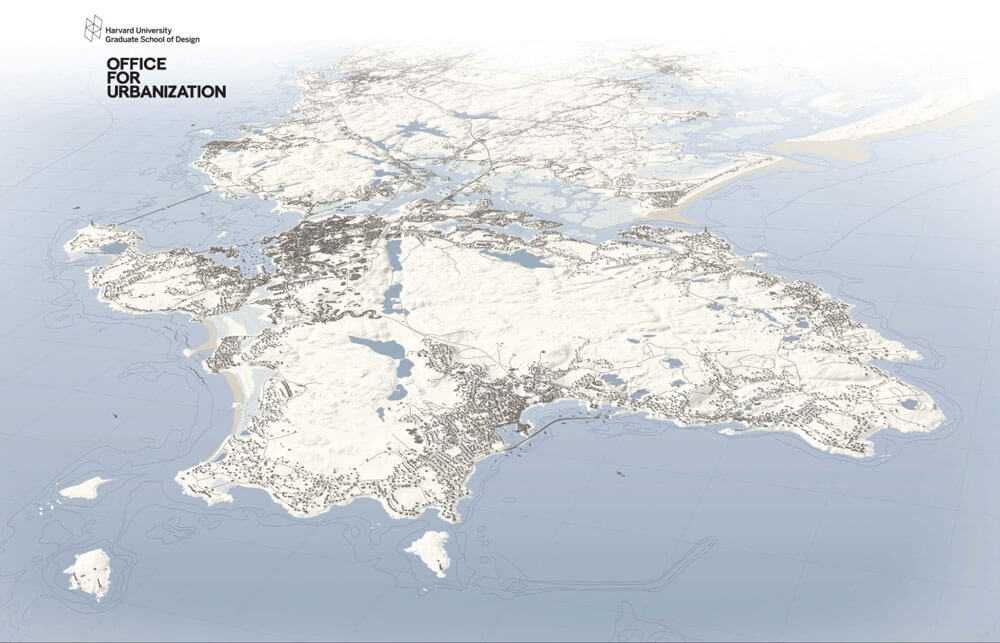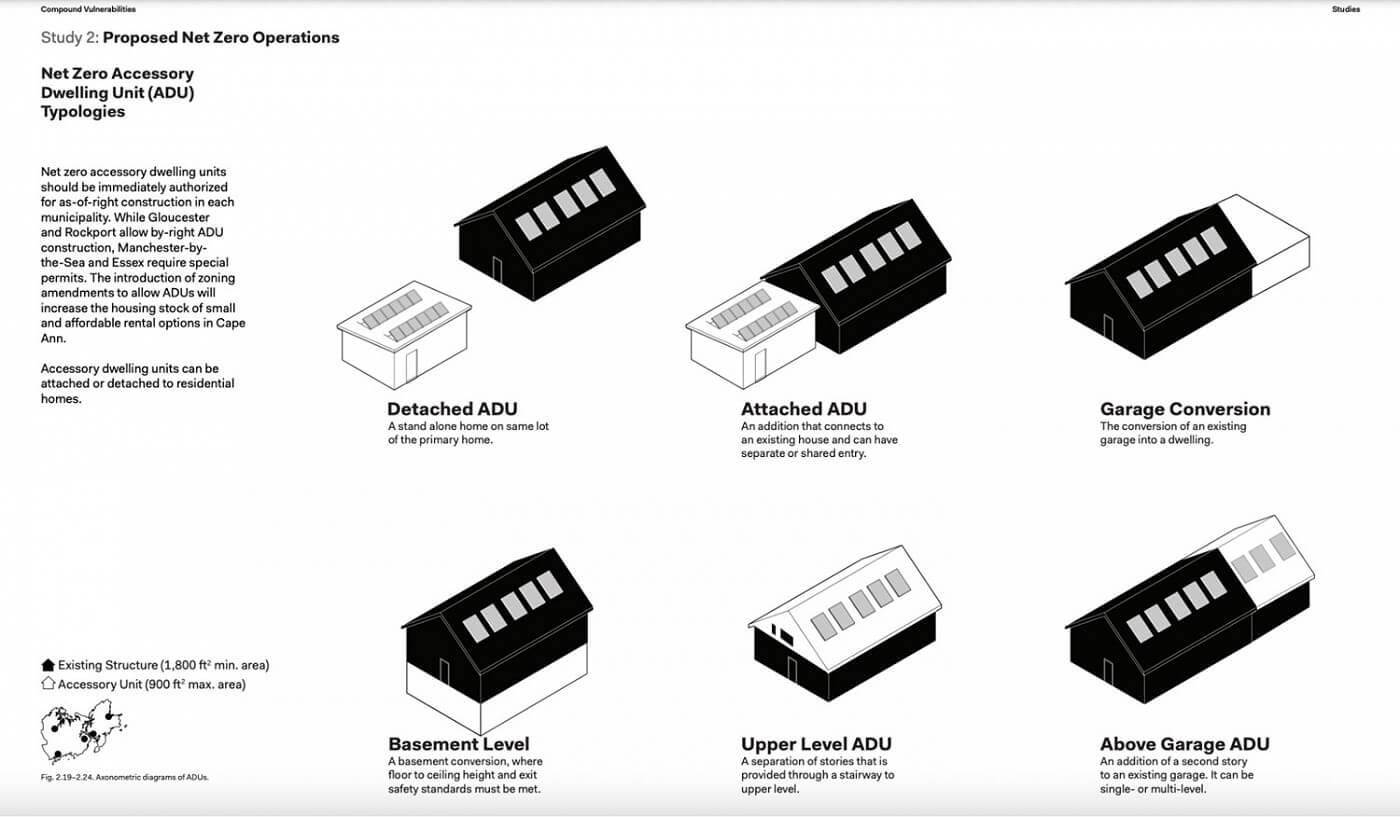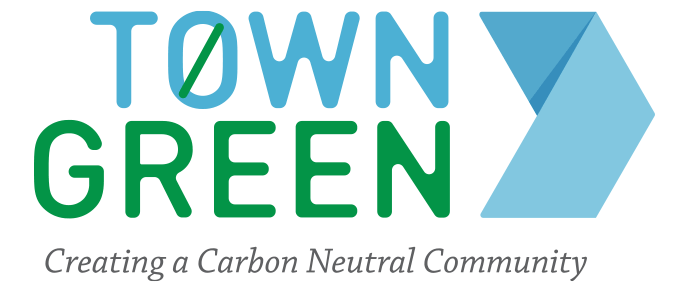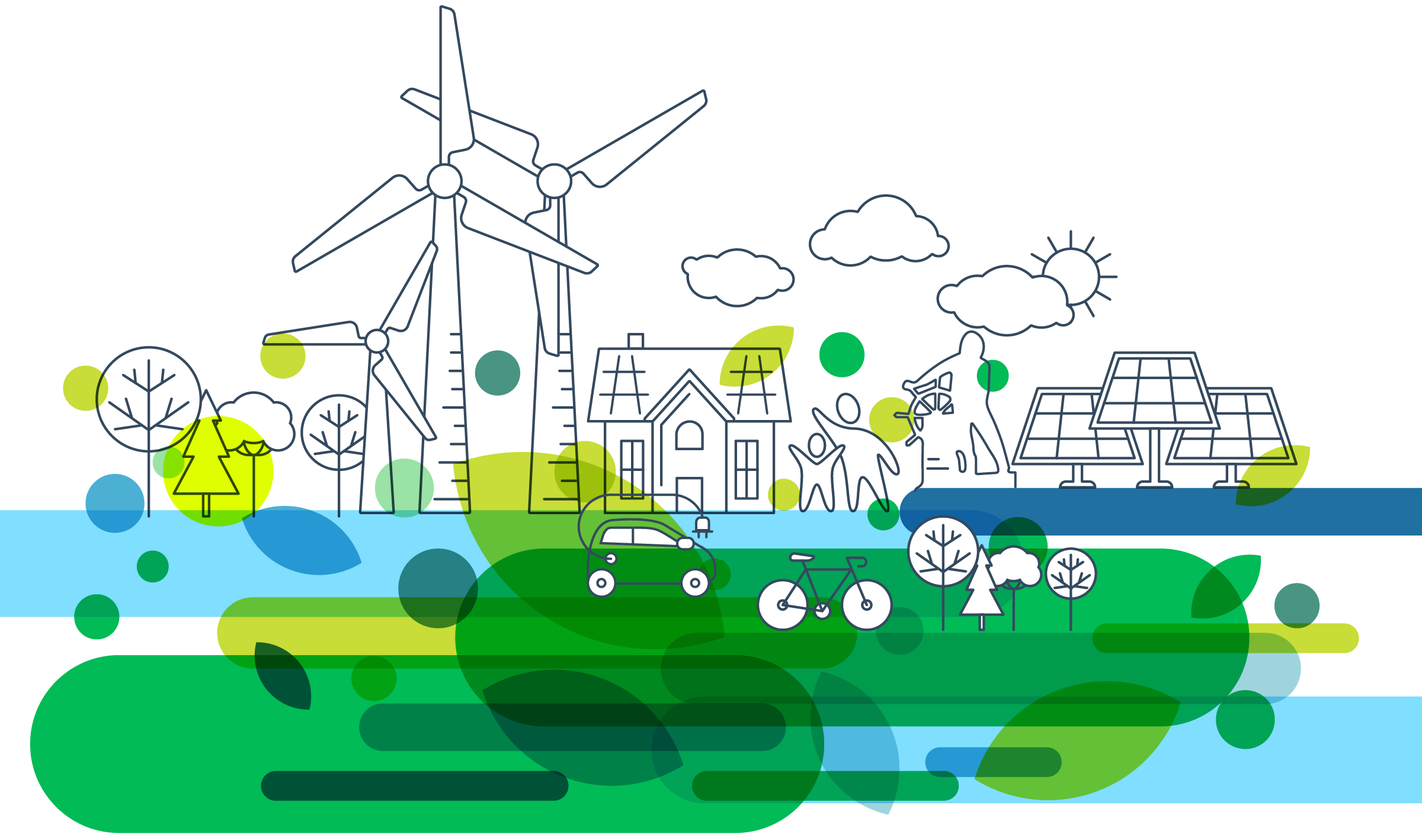TownGreen’s Webinar Focusing on Good Harbor Beach and Surrounding Ecosystem Brings In Large Audience
Jayne Knott, Principal Scientist at HydroPredictions explains how the Good Harbor Beach ecosystem will look like with 4 feet of sea level rise. TownGreen Workshop October 26, 2022.
TownGreen hosted a successful workshop webinar on October 26th focusing on the Good Harbor Beach ecosystem that includes Good Harbor Beach, Salt Island, the marsh, and the surrounding connected ecosystem. 113 people registered and 78 participants heard from researchers, advocates, a local historian, and TownGreen board members and staff about probable impacts to the ecosystem from climate change.
Takeaways from the participants include:
- The marsh and surrounding ecosystem needs to be kept healthy and restored to mitigate climate threats from sea level rise.
- Public input and participation in climate change education and adaptation is vital for the region.
- Sea level rise will have an impact on people who own homes in the Good Harbor Beach area.
- Emergency evacuation routes need to be updated to take sea level rise and storm surge into account.
The workshop was followed by a Good Harbor field trip on October 27th to tour vulnerable areas at Good Harbor Beach and the marsh, led by Alison Frye, Associate Director of Salem Sound Coastwatch.
Climate Impacts on the GoodHarbor Beach Ecosystem
The copy of the slide deck is available here.
The second (November 30th) and third workshop (spring 2023) webinars on Good Harbor Beach will address adaptation options and project planning, and will also include associated field trips. In 2023, TownGreen will have similar workshops that will focus on climate impacts in Essex, Manchester-by-the-Sea, and Rockport.

The Case for Cape Ann Study 2: Net Zero Housing on Cape Ann
You may have heard about Net Zero housing, especially in the recent Electrify Everything events sponsored by the Cape Ann Climate Coalition. And now the latest scenario release in the Harvard University Graduate School of Design study of climate impacts on Cape Ann focuses on Net Zero Housing. TownGreen will release The Case for Cape Ann: Study 2 - Net Zero Housing to the public in November, but for now, here are some highlights from the study.
Residential and commercial buildings in the United States use 70% of the electricity generated in the United States. Mitigating climate change requires decarbonizing all aspects of the built environment, including construction processes and energy generation. Solar technologies, including photovoltaic panels, have become cost efficient in recent years and will continue to become more affordable and widely adopted across the globe.
The shift to net zero construction is critical because New England is largely dependent on natural gas for power generation and heating. These resources rely on aging infrastructure. ISO New England has estimated that there could be fuel shortages and electrical system reliability issues by 2024 due to regional fuel security concerns. It is therefore important that the Cape Ann region increase its energy independence. Cape Ann, and Gloucester in particular, have already experimented with green infrastructure. The wind turbines at Blackburn Industrial Park, for example, are a landmark on Cape Ann. To continue to increase resilience, individual buildings should be outfitted with solar panels. There are 20,361 buildings across Cape Ann that are suitable for solar power installation. These buildings have annual solar radiation greater than 800 kWh and greater than square meters of rooftop space for solar installations. If every suitable rooftop on Cape Ann was outfitted with solar panels, residents could generate 516,206 MWh of electricity per year. This is greater than the 324,609 MWh of electricity used across Cape Ann annually.
Several residents on Cape Ann have converted their existing homes into net zero properties in recent years. This individual innovation should be supported by municipalities with incentives for net zero construction. The process of constructing housing involves community participation in the form of Town Meeting and Zoning Board meetings. These forums are an important democratic feature of municipal decision-making. However, they may also unintentionally bias policy discussions in favor of an unrepresentative group of overwhelmingly older, male longtime residents and homeowners. Such participatory inequalities have far-reaching implications for the future of equitable housing on Cape Ann. It is critical that discussions about relocation foreground affordable housing and enable representative community participation.
As a region, Cape Ann faces significant demand for diversified housing options to increase social equity. Additional housing types can accommodate the broad variety of lifestyle preferences of Cape Ann residents, including seniors, younger residents, families, artists, and workers. Study 2: Net Zero Housing, projects a range of housing options across Cape Ann that are accessible to a wider range of residents, and proposes net-zero building strategies including passive orientation, renewable energy production, and innovative construction methods.
All highlights and figures from: Waldheim C, Clingen, K. The Case for Cape Ann: Study 2 - Net Zero Housing, Harvard Graduate School of Design; 2022.
Another Excerpt from the Voices Project: Composite Character “Caleb”
Here is another excerpt from “Cape Ann Fieldwork: Perceptions of Climate Change Among a Coastal Population” this time highlighting “Caleb,” one of the six composite characters in the study. Information was gathered from casual conversations with over 100 people and interviews with 44 Cape Ann residents, resulting in a final report that contains a fusion of multiple viewpoints as six composite characters that represent the viewpoints of all the people engaged by the Harvard team.
Q. Could you tell us about yourself? Why do you live in Cape Ann?
Well, my name is Caleb. I have been in the field of marine science for more than 30 years. I am originally from New England. I did my bachelor’s and master’s on the West Coast. After my studies, I worked in various countries. Marine research eventually brought me to Cape Ann, and now I have lived here since 2015.
Q. What do you like about living in Cape Ann?
Nature. Not only are we close to the ocean, but there are also nice hiking and mountain bike trails. I also like kayaking in the marsh areas. Not to mention the innovator spirit historically embedded in this area. Did you have a chance to visit Hammond Castle? The castle was the home of John Hays Hammond, Jr., known as the inventor of remote control. Also, in my opinion, what the science community offers here is new and attractive. There are several programs offering new opportunities in this town. For example, my scientist friends working to accelerate tech-driven innovations—like drones for whale research—share a makers’ space. Some genomic research groups on marine resources like sea urchins, Jonah crabs, seabed sediments, and fish offer summer science programs for school children. There is also a program that provides lab technician training programs for young adults and high school students. After the training, many go to work in the biochemistry and biomanufacturing industry in Massachusetts. Some of them come from fishermen’s families, so their relationship with the fishing industry can be another potential way to bridge the fishing industry and the science community. It’s also surprising that most of the graduates want to stay in the area. I hope this becomes a new trend in Cape Ann so that we will have more young generations. I remember at first some residents were skeptical about the science community’s role here. But as we give back to the community through these various ways, they started to open their minds more. Now, some have an understanding of our research itself, too. One time, a fisherman brought us a righteye flounder which had its eyes on the opposite side. He thought we would be interested in seeing it. And we loved it!
Q. What do you not like about Cape Ann?
I can’t think of any. One thing that surprised me, though, is how the town looks so different in the summer and off season. The summer population increases significantly with visitors and people who have summer houses here.
Q. What is your greatest concern for the future of Cape Ann?
It is the destruction of the ocean ecosystem in this area. Marine scientists like us are, all in all, working to sustain a healthy ocean ecosystem and hoping to contribute to the blue economy. I hope the scientific data we provide can be useful for people and nature. The ocean is an incredibly complex ecosystem, and there are many things we don’t know yet. For example, this year, the number of Jonah crabs increased in this area. It was so abundant that I saw some fishermen giving out Jonah crabs to his friends for free. They were bycatch of lobster traps, but there were just so many these days! We do not know exactly if the Jonah crabs have increased or why, but our primary observation is that it has increased.
Q. What are your hopes for the future of Cape Ann?
I think the scientific community has huge potential here for a sustainable blue economy. Each organization’s approach differs, but I am sure we, as a science community, share the same goal: we want to contribute to the Cape Ann community and its blue economy. So let me introduce some ongoing initiatives I know. There is a program to diversify career opportunities for younger generations by offering technical training, which connects ocean science to biomanufacturing and biochemistry. There is another one to foster an innovative mindset and tech literacy through a makers’ space. I know that the fishing industry is in need of modernizing the fleet and installing new machines for ice-making and gutting that can ease the labor-intensive character of the industry and maybe invite young generations. Maybe tech education can help those move some way or another. So, yes, I do hope the relationship between the fishing industry and the scientific community continues to grow.
Q. Tell us how you feel about climate change. Do you think the climate in Cape Ann is changing? What is your greatest concern for the future of climate change in Cape Ann?
First, I have to say that I am not an expert. But, at least I can say that storms have been getting stronger. The flooding of Gloucester High School a few years ago was big news. I can tell the stronger storms cause erosion. But building seawalls, or other kinds of large infrastructure, has to be carefully discussed because it will impact the ecosystem around the waterfront and beaches. Also, the sea temperature is rising. The Gulf of Maine is one of the fastest-warming waters and its ecosystem has already been impacted. We would have to be concerned about lobsters, which Gloucester relies on a lot because as the water gets warmer they would move deeper or north. Imagine if lobsters disappear. It would be detrimental not only to the industry itself but to the entire local economy.
Q. What can be done to better prepare Cape Ann for the impacts of climate change?
I think “climate change” can, and should, bring people with different views together. We have tried to create connections with the local community. I wouldn’t say it was easy, but I don’t think our institution would have been the same without them. It is hard to engage various groups in the decision-making, but it is worth it.
TownGreen November Reminders
Thursday, November 10th: Cape Ann Climate Coalition Annual Meeting
The Cape Ann Climate Coalition will hold its Annual Meeting at the Rose Baker Senior Center on November 10th from 7:00-9:00pm. The event will feature State Senator Bruce Tarr who will review the Massachusetts climate legislation that was recently passed.
Saturday, November 19th: TownGreen and Gloucester Meetinghouse Foundation Symposium on Urban Planning and Climate Change in Downtown Gloucester
TownGreen and the Gloucester Meetinghouse Foundation will host a symposium at the Gloucester Unitarian Universalist Church at 10 Church Street on Saturday, November 19th from 1:00 to 3:00pm. It is free to the public. Presenters include Gloucester Mayor Greg Verga, Professor Charles Waldheim from Harvard Graduate School of Design, Professor Antonio Raciti from the University of Massachusetts Boston, and a guest speaker on economic development and climate implications.
Wednesday, November 30th: The second workshop webinar in the Good Harbor Beach Series will be on Wednesday, November 30th from 6:30-8:30pm on Zoom. This event will focus on climate adaptation strategies and solutions. Register for this event here. The associated field trip will be on January 23rd, 2023. More details will be available in upcoming newsletters. Register for this event here.
Early December: TownGreen Open Forum
We will be in touch about a December date for the next TownGreen Open Forum that will provide a summary of ongoing projects, news, and allows for the public to ask questions and participate in discussions regarding climate change impacts and strategies on Cape Ann.




